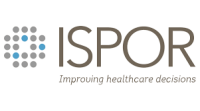About Ispor—the professional society for health economics and outcomes research
ISPOR: The Professional Society for Health Economics and Outcomes Research
ISPOR is a global professional society that focuses on health economics and outcomes research (HEOR). It is the leading organization in this field, with over 20,000 members from more than 120 countries. ISPOR's mission is to promote excellence in HEOR to improve healthcare decision-making worldwide.
The society was founded in 1995 by a group of researchers who recognized the need for an international forum for HEOR. Since then, ISPOR has grown into a vibrant community of professionals who are dedicated to advancing the science of HEOR through research, education, and collaboration.
One of ISPOR's key strengths is its multidisciplinary approach. Members come from a wide range of backgrounds, including academia, industry, government agencies, patient organizations, and healthcare providers. This diversity allows ISPOR to bring together different perspectives and expertise to address complex issues related to healthcare decision-making.
ISPOR offers many resources for its members. These include:
- Conferences: ISPOR holds several conferences each year that bring together researchers and practitioners from around the world to share their latest findings and insights.
- Publications: The society publishes several peer-reviewed journals that cover different aspects of HEOR.
- Education: ISPOR offers online courses on various topics related to HEOR.
- Special interest groups (SIGs): Members can join SIGs focused on specific areas within HEOR.
One area where ISPOR has made significant contributions is in the development of health technology assessment (HTA) methods. HTA involves evaluating new medical technologies such as drugs or devices to determine their clinical effectiveness and cost-effectiveness compared with existing treatments. This information can help policymakers make informed decisions about which treatments should be covered by public or private insurance programs.
ISPOR has been at the forefront of developing HTA methods that are rigorous yet practical. For example, it has developed guidelines for conducting economic evaluations alongside clinical trials so that both types of data can be used together in decision-making.
Another area where ISPOR has been active is in promoting patient-centeredness in healthcare decision-making. This means involving patients more directly in decisions about their own care as well as considering patients' preferences when making broader policy decisions about healthcare resource allocation.
Overall, ISPOR plays an important role in advancing our understanding of how best to use limited healthcare resources to improve patient outcomes. Its multidisciplinary approach brings together diverse perspectives and expertise from around the world to tackle complex issues related to healthcare decision-making. If you're interested in learning more about health economics and outcomes research or getting involved with this dynamic community of professionals, consider joining ISPOR today!
